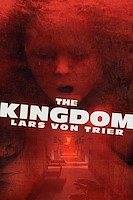Riget : Episoden 7 + 8
Lars von Trier, Morten Anfred, Danemark, 1997o
Le médecin-chef Moesgaard s'enfonce dans une crise de nerfs et confie la direction administrative de l'hôpital à Helmer. Ce dernier mène les rapports matinaux à l'absurde et décide de transformer en zombie, à l'aide d'un poison vaudou, le jeune collègue récalcitrant qui traque le rapport disparu concernant son erreur médicale.Madame Drusse revient à l'hôpital en tant que victime d'un accident et découvre peu à peu ce qu'il en est des fantômes du Riget, tandis que Judith s'épuise à soigner son bébé qui grandit de manière monstrueuse et que les paris nocturnes des charges inférieures sur le conducteur fantôme de l'ambulance s'enveniment.
Until the 1990s, TV series were almost exclusively told as a string of self-contained episodes. If you missed out on one, it didn't matter; if a series was successful, it could be extended at will. The price of this formula was that complex narratives were hardly possible and series were regarded as cinematic dime novels. With the mystery series Twin Peaks in 1990, David Lynch broke with the ironclad genre rule - not quite the first - and developed a continuous thriller storyline that stretched like a novel over thirty episodes or 25 hours. Lars von Trier followed in Lynch's footsteps in 1994 with his nine-hour hospital series Riget/The Kingdom, the second part of which was released in 1997. Von Trier went even a step further and also presented the ongoing narrative as a wild mix of black comedy, occult thriller and horror film. The second season is as captivating and funny as the first. It also makes it clear what von Trier was really about. Riget is not only a sweeping attack on the profession of doctors, who run a supposedly ultra-modern and strictly rational hospital as an unrestrainedly autocratic and ludicrously bumbling regime, but also a lurid social satire in which everyone gets their comeuppance: conceived with malicious wit, staged consistently trashy, but true to the core.
Andreas Furler

